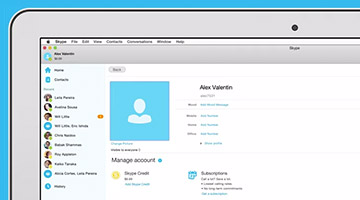

This week, we discovered a serious security risk and privacy breach with the Skype for Business app. Sometimes, ubiquitous, extremely popular services release some features that truly boggle the mind.

Sometimes, it becomes obvious that tools and education alone won’t keep users truly safe online, nor will they enforce their privacy. To learn more about keeping your computer safe from viruses, review our lesson on How to Avoid Malware from our Internet Safety tutorial.Here at Heimdal Security, we spread our time between providing security tools to prevent serious attacks like ransomware or next-gen malware and providing the education necessary to keep personal data safe across various platforms and devices. Firewall software helps to prevent people or malware from gaining access to your computer through the Internet. Viruses can spread quickly, and if your antivirus software isn't up to date it may not be able to block new viruses. If a contact sends you a file that seems suspicious, you should call or IM that person to verify that it was meant for you. Even if the file looks like it's from someone you know, it may have been sent to you automatically by a virus. Don't open any files you weren't expecting.This is why it's important to be careful when opening files and to always follow these precautions:

While it's not very likely, it's important to note that files sent to you over Skype could contain viruses and other malware. Files will appear in your history, and you can double-click to open a file.

Your contacts can also send you files over Skype. During any call or IM, select the Share Files button in the message box.This way, you won't receive any unexpected messages or share a private conversation by accident. You could also change your online status to Busy to let friends know you're unavailable. Sign out of instant messaging or chat programs.If you leave this information open, you might click it by accident while you're in the middle of a session. This includes your browser and any browser tabs you may have forgotten about. Close any programs you don't want the other person to see.Anything you want to keep private should be changed or moved to another location. The other person will be able to see any files, folders, or icons you have saved there, plus the image you're using for your background. Check your desktop before you share your screen.To keep your information private, always follow these safety tips. This can include your bank account, your email-even photos or websites you don't want other people to see. Basically, screen sharing lets the other person see your entire desktop, plus anything else you have open. It's a good idea to think of screen sharing the same way. Would you feel comfortable checking your bank account online while a coworker looked over your shoulder? Probably not.


 0 kommentar(er)
0 kommentar(er)
